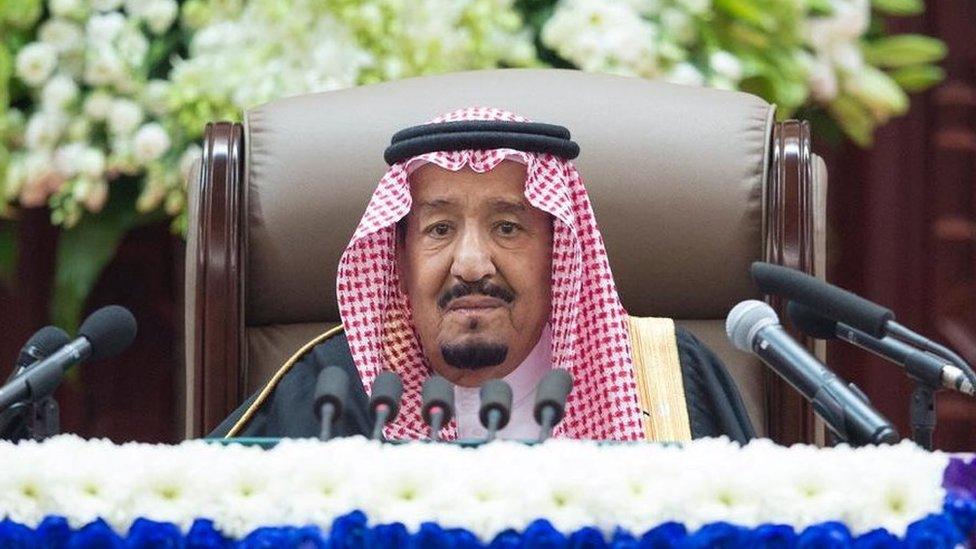Khashoggi killing: CIA did not blame Saudi crown prince, says Trump
- Published
The BBC's Frank Gardner looks at what could happen to the man known as MBS
US President Donald Trump has said the CIA did not conclude that Saudi Crown Prince Mohammed bin Salman ordered the murder of journalist Jamal Khashoggi.
Khashoggi was killed on 2 October in the Saudi consulate in Istanbul.
US officials have reportedly said that such an operation would have needed the prince's approval, external. But Saudi Arabia maintains it was a "rogue operation".
"They didn't conclude," Mr Trump said when asked about the CIA's reported evaluation by reporters in Florida.
His comments on Thursday came as the Saudi crown prince began a regional tour of the Middle East, starting with the United Arab Emirates - his first official trip abroad since Khashoggi was killed.
The Crown Prince of Abu Dhabi, Mohammed bin Zayed, tweeted to say the UAE "will always be a loving and supportive home for our brothers in Saudi Arabia".
Allow X content?
This article contains content provided by X. We ask for your permission before anything is loaded, as they may be using cookies and other technologies. You may want to read X’s cookie policy, external and privacy policy, external before accepting. To view this content choose ‘accept and continue’.

The Saudi crown prince is also expected to participate in a G20 meeting of world leaders in Buenos Aires at the end of the month that will be attended by leaders from the US, Turkey and a number of European countries.
In another development, about 200 British military personnel and eight Royal Air Force (RAF) Typhoon jets have arrived in Saudi Arabia to take part in a joint military exercise.
The RAF described it as a "pre-planned exercise" but the timing is potentially embarrassing to the UK government, BBC defence correspondent Jonathan Beale says.
Britain has previously called on Saudi authorities to fully explain Khashoggi's death.
Meanwhile, France has announced that it is imposing sanctions on 18 Saudi nationals - the same individuals targeted with sanctions by the US, UK and Germany - allegedly linked to the Khashoggi murder.
Their list of individuals does not include the crown prince, a spokesperson for the French ministry of foreign affairs said.
What has Trump said about the CIA report?
"They have feelings certain ways. I have the report, they have not concluded, I don't know if anyone's going to be able to conclude the crown prince did it," Mr Trump told reporters in Florida.
"But whether he did or whether he didn't, he denies it vehemently. His father denies it, the king, vehemently," he added.
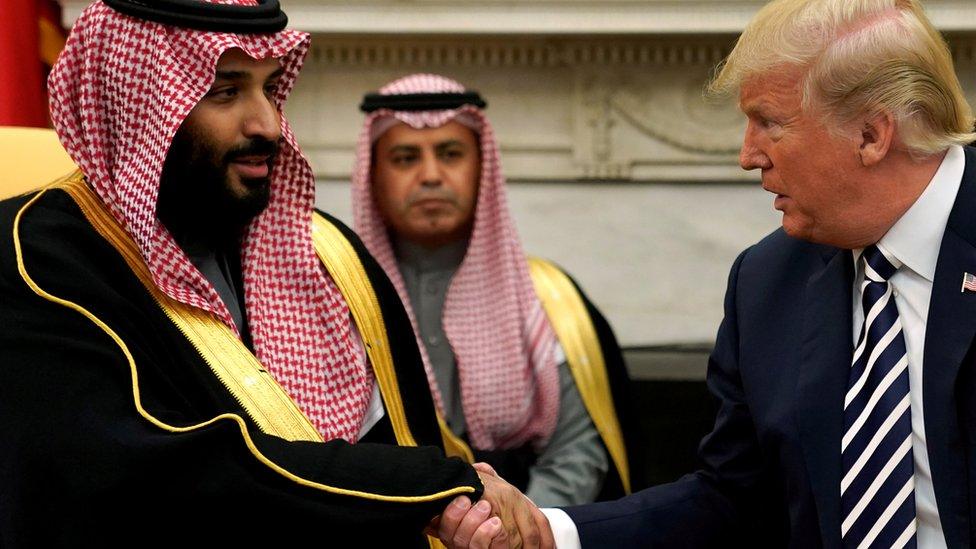
President Trump stressed business and military ties with the Gulf state
Earlier this week, Mr Trump released a statement suggesting that the crown prince "could very well" have known about the murder.
His statement said: "[It] could very well be that the crown prince had knowledge of this tragic event - maybe he did and maybe he didn't!"
The president has repeatedly stressed the importance of Saudi Arabia to the US following the killing, calling the kingdom a "steadfast partner" that has agreed to invest "a record amount of money" in the US.
On 17 November, White House Press Secretary Sarah Sanders told reporters that Mr Trump had confidence in the CIA following conversations with Director Gina Haspel and Secretary of State Mike Pompeo about the Khashoggi murder.
Sources quoted in the US media at the time stressed that there was no single piece of evidence linking the crown prince directly to the murder, but officials believe the killing would have required his endorsement.
BBC security correspondent Frank Gardner says intelligence agencies rarely offer their governments cast-iron, 100% conclusions, instead producing nuanced assessments often based on probabilities. This wariness has become more pronounced since the mistakes made in the run-up to the Iraq invasion of 2003.
Separately, the Hurriyet newspaper reported on Thursday that Ms Haspel told Turkish officials last month that the CIA had a recording in which the crown prince gave instructions to "silence" the Saudi writer as soon as possible.
When asked about the claims by reporters, Mr Trump said: "I don't want to talk about it. You'll have to ask them."
What have the Saudis said?
Saudi Arabia says claims that the crown prince may have ordered the Khashoggi killing are false and maintains that he knew nothing about it.
The Gulf kingdom's public prosecutor has said Khashoggi was killed inside the consulate as a result of a "rogue operation" on the orders of an intelligence officer.
Khashoggi was given a lethal injection after a struggle. His body was then dismembered inside the consulate in Istanbul and the body parts were handed over to a local "collaborator" outside the grounds, the prosecutor said.
He said investigations had "revealed that the person who ordered the killing was the head of the negotiations team", but did not identify any of the 11 people charged with the murder.
Who was Jamal Khashoggi?
As a prominent journalist, he covered major stories including the Soviet invasion of Afghanistan and the rise of Osama Bin Laden for various Saudi news organisations.
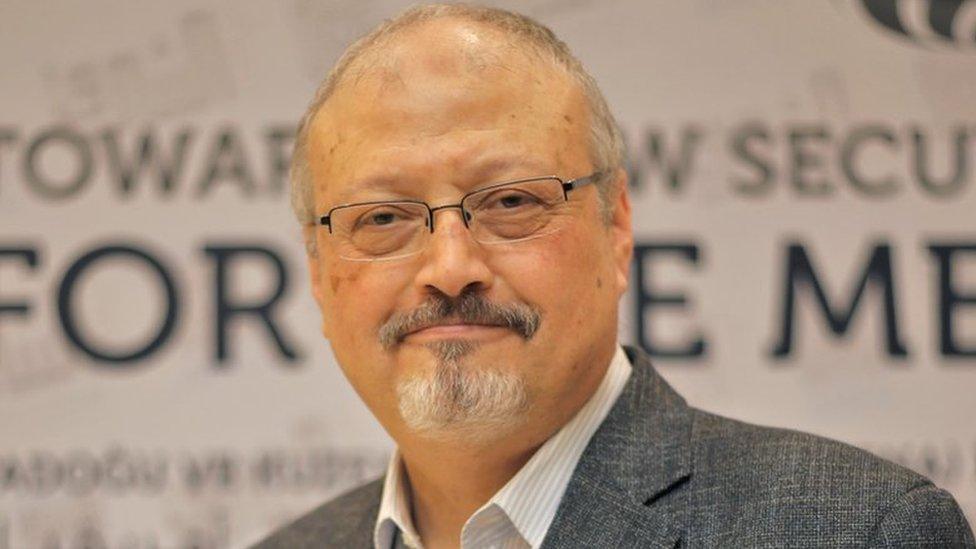
Jamal Khashoggi had gone to Istanbul to obtain a marriage document
For decades he was close to the Saudi royal family and also served as an adviser to the government.
But he fell out of favour and went into self-imposed exile in the US last year. From there, he wrote a monthly column in the Washington Post in which he criticised the policies of Crown Prince Mohammed bin Salman.
In his first column for the newspaper, Khashoggi said he feared being arrested in an apparent crackdown on dissent overseen by the prince since.
In his last column, he criticised Saudi involvement in the Yemen conflict, external.
- Published21 November 2018
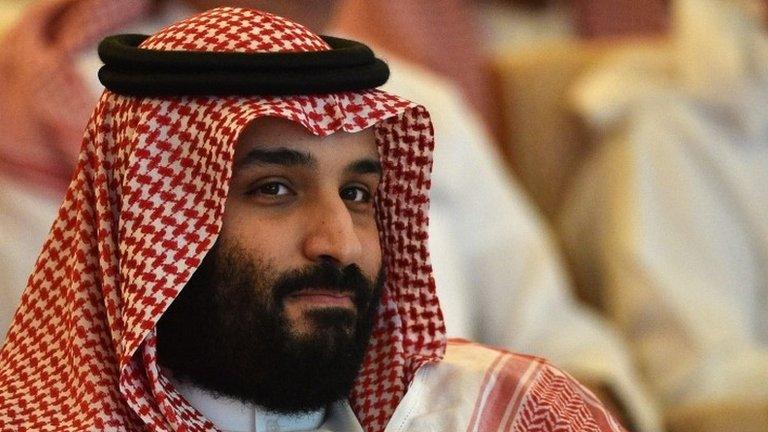
- Published21 November 2018
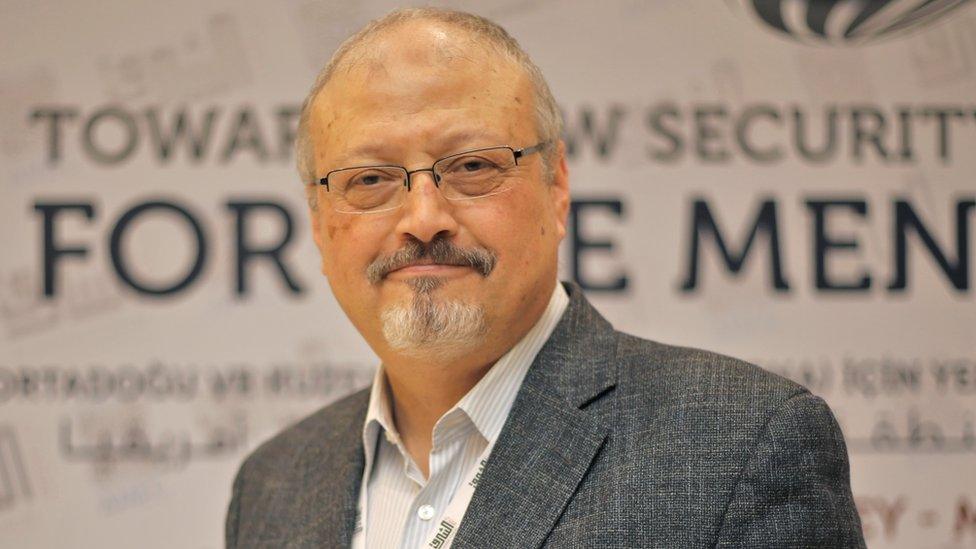
- Published17 November 2018
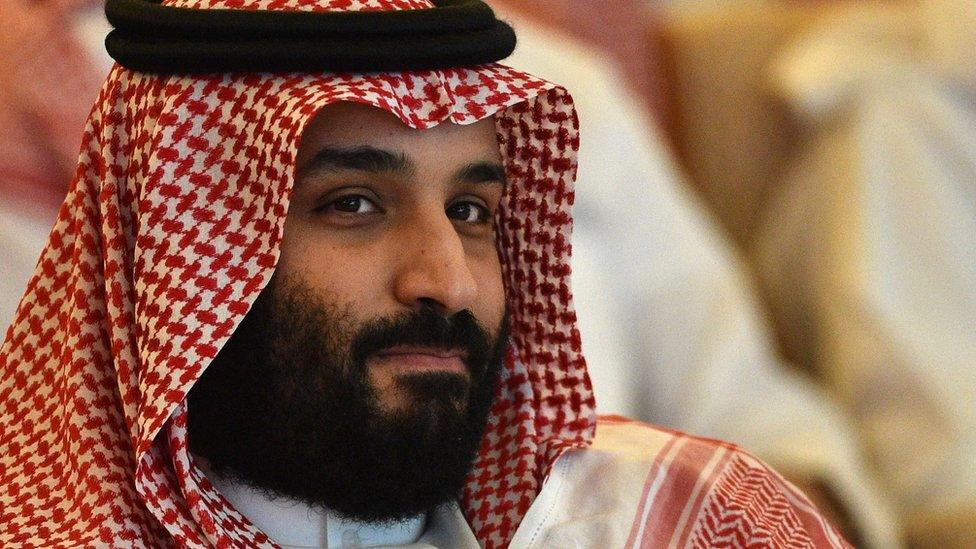
- Published19 November 2018
